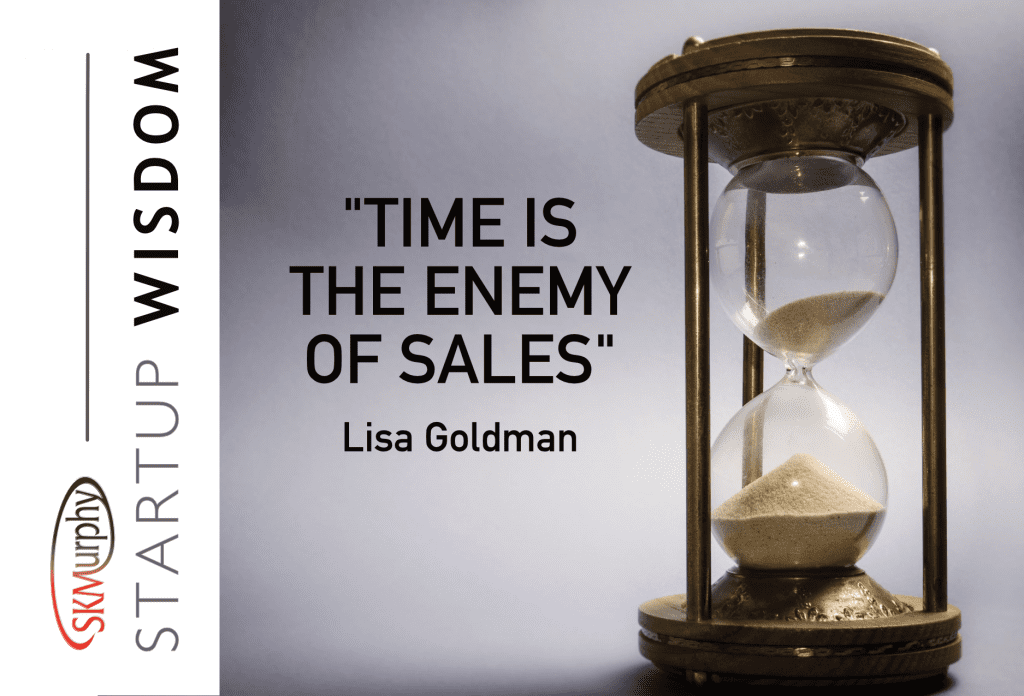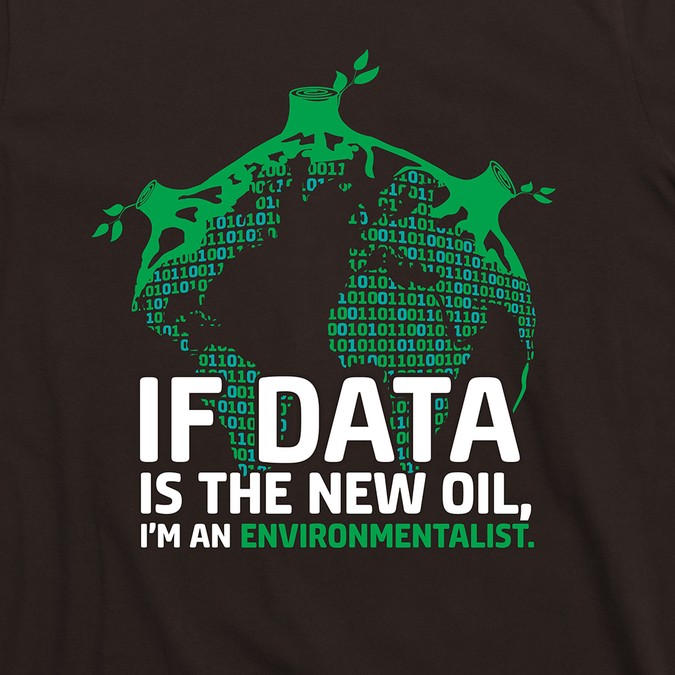I collect these quotes for entrepreneurs from a variety of sources and tweet them on @skmurphy about once a day where you can get them hot off the mojo wire. At the end of each month I curate them in a blog post that adds commentary and may contain a longer passage from the same source for context. Please enter your E-mail address if you would like to have new blog posts sent to you.
Quotes For Entrepreneurs Collected in September 2018
My theme this month is “trial and error.” Any resemblance to recent events or the realities of our plans for the balance of 2018 are purely coincidental.
+ + +
“It is often the failure who is the pioneer in new lands, new undertakings, and new forms of expression.”
Eric Hoffer
+ + +
“Nothing fails like success because we don’t learn from it. We learn only from failure.”
Kenneth E. Boulding
I think you can learn from either, certainly amateurs learn from their success when trying something new. The first time they learn it was possible, and when they repeat it, that it was not a fluke: both are valuable lessons.
+ + +
“It is very dangerous to favor those good at explaining but not understanding over people good at understanding but not explaining.”
Nassim Nicholas Taleb (@nntaleb)
A critique of Adam Grant’s “Those Who Can Do, Can’t Teach.” To me the deeper problem is that a lot of what an expert knows is tacit knowledge, collaborating with them is a much more effective way to transfer knowledge. Their critique of your “trial and error” may be more useful than any verbal or written summary, but you may be able to learn a lot about their perspective and mindset through collaboration on problems.
+ + +
“Truth always originates in a minority of one, and every custom begins as a broken precedent.”
Will Durant
Of course, most error is also original and often breaks with (prior successful) precedent. That’s why successful organizations tend to suppress new truths, they look like errors.
+ + +
“The formula is simple: if one’s city just built a sardine can to shove 12,000 tech employees in, the housing in one’s city is about to look the same. The deployment of housing cannot be disconnected from the growth of employment.”
uberfeminist in “One Infinite Loop — America’s NIMBY Nonsense“
Related tweet @uberfeminist: “Single family housing in the Bay Area:
- across street from Facebook HQ
- across street from Apple Park
- across street from Intel and Oracle HQ
- 5 minute walk from Googleplex
Do you think this is rational city planning? The Bay Area is a cognitive disorder with a population deciding that compact large scale centralized office spaces can be done without compact large scale centralized housing AND without a transit system that makes any sense.”
+ + +
“You can fail to achieve any of the things you planned and still live a happy and fulfilled life, because of opportunities that come along that you never planned for. But these opportunities can be missed if you stick doggedly to your preconceived blueprint.”
Thomas Sowell
Planning should open your mind to possibilities–and risks. It’s more useful to develop a plan that looks like a decision tree than a simple sequence of steps.
+ + +
“To the mind, our organs are resident aliens: autonomous to our will, their workings mysterious, their presence confirmed only when they crash.”
Greg Norminton in “The Lost Art of Losing”
It’s funny how little is under conscious control. I think meditation helps bring mind and body into better alignment, increasing mindfulness.
+ + +
“Time is the Enemy of Sales”
Lisa Goldman
+ + +
“We had to start somewhere, either succeed or fail, and then build what we knew as we went along.”
Homer Hickam in “Rocket Boys“
h/t Evelyn Rodriguez; more context
“We need to see how the powder acts under pressure,” Quentin said. “Whatever the result, we’ll have a basis for modification.”
I was becoming used to Quentin’s way of putting things. What he was saying was that we had to start somewhere, either succeed or fail, and then build what we knew as we went along. It seemed to me, considering all the rockets that I read about blowing up down at Cape Canaveral, that was the way Werner von Braun and the other rocket scientists did their work too. Without Quentin, I might have been too embarrassed to fail in front of God and everybody. With him, no matter what happened, I felt ‘scientific.’ Failure, after all, just added to our body of knowledge. That was Quentin’s phrase too. Body of knowledge. I liked the idea that we were building one.”
Homer Hickam in “Rocket Boys“
+ + +
“Most negotiations are not zero sum…in a world where most projects are not zero sum, how things are negotiated upfront sets the stage for how the relationship will play out in the long term.”
Craig Shapiro in “Negotiating“
Smart entrepreneurs understand that most new product negotiations are about shared value creation. More context:
Most negotiations are not zero sum.
The winds shift so quickly in the business world that even when you feel invincible, you are still vulnerable – you just don’t know it. If you spend your life extracting as much value from people when you can, do not be surprised when people don’t want to help you when get knocked down.
Some of the most successful people are also the most generous. They always leave something on the table for the other side.
They do this even when they have maximum leverage. They do this because they know what it is like to be on the other side of the table. They do this because they believe in fairness more than winning.
The key is realizing that in a world where most projects are not zero sum, how things are negotiated upfront sets the stage for how the relationship will play out in the long term.
Craig Shapiro in “Negotiating“
+ + +
“If Data is the New Oil,
I am an Environmentalist”
Johannes Ernst (@Johannes_Ernst )
Johannes Ernst mentioned this at yesterday’s Bootstrapper Breakfast Coffee Break in Palo Alto: “The pun in the text is to make an analogy between environmental destruction and exploitation of nature by companies, and data mining, privacy invasion, and big data hoarding by companies. His plan is to wear a t-shirt with this logo when attending meetings of people who like to collect data on individuals–often against our wishes.” T-shirts available from Indietech on-line store.
+ + +
“You are not only responsible for what you say, but also for what you do not say.”
Martin Luther
Silence does not imply consent but failure to speak up when the situation requires it is as much a failure as saying the wrong thing. Those of us with ADD may make the latter mistake much more often than the former (“did I say that out loud?”) but both are mistakes. Related:
“Regret for the things we did can be tempered by time; it is regret for the things we did not do that is inconsolable.”
Sydney J. Harris in Strictly Personal
+ + +
“We have learned too that the “arts” of sensing and knowing consist in honoring our highly limited capacity for taking in and processing information. We honor that capacity by learning the methods of compacting vast ranges of experience in economical symbols–concepts, language, metaphor, myth, formulae. The price of failing at this art is either to be trapped in a confined world of experience or to be a victim of an overload of information. What a society does for its members, and what they could surely not achieve on their own in a lifetime, is to equip them with a ready means for entering a world of enormous potential complexity. It does all this by providing the means of simplification–most notably, a language and an ordering point of view to go with the language.”
Jerome Bruner in the introduction to “On Knowing: Essays for the Left Hand“
Subcultures and communities of practice develop domain specific languages, models, diagrams, notations, heuristics. This is the power of communities for entrepreneurs, it gives them a jump start in understanding how to represent and solve problems in a particular domain. See “Entrepreneurs Need a Community of Practice, not a Movement” for more on the value of communities of practice.
+ + +
“I found myself again in the happy state which most researchers know of losing sleep as the result of an exciting idea.”
Charles Townes in “Making Waves“
h/t Bret Victor (@worrydream)
+ + +
“I don’t think that you can invent on behalf of customers unless you’re willing to think long-term, because a lot of invention doesn’t work. If you’re going to invent, it means you’re going to experiment, and if you’re going to experiment, you’re going to fail, and if you’re going to fail, you have to think long term.”
Jeff Bezos in an interview with Hanson Hosein on “Four Peaks“
h/t Todd Bishop (GeekWire) in “Jeff Bezos explains why Amazon doesn’t really care about its competitors.”
+ + +
“Uncertainty disappears into habit.”
Simon Constam
An insight into the comforts–and discomforts–of the beaten path. The risk is learned helplessness if you embrace a path with a lot of discomfort. Explorers avoid learned helplessness by moving off the path into uncertainty. Inventors avoid learned helplessness by enlarging the set of tools they can use to interact with and influence their environment. Entrepreneurs combine exploration and invention to reach a much larger possibility set.
+ + +
“Go and see what you don’t know is there.”
Simon Constam
This might be called the explorer’s credo for embracing uncertainty.
+ + +
“We learn as much by others’ failings as by their teachings.
Examples of imperfection are just as useful for achieving
perfection as are models of competence and perfection.”
Madeleine de Souvre (Madame de Sablé)
h/t Dr. Mardy Grothe “Imperfection”
+ + +
“Examination, like fire, is a good servant, but a bad master; and there seems to me to be some danger of its becoming our master. I by no means stand alone in this opinion. Experienced friends of mine do not hesitate to say that students whose career they watch appear to them to become deteriorated by the constant effort to pass this or that examination, just as we hear of men’s brains becoming affected by the daily necessity of catching a train. They work to pass, not to know; and outraged Science takes her revenge. They do pass, and they don’t know.
Thomas Huxley in “Aphorisms and Reflections” (1908)
For entrepreneurs real life is the test.
+ + +
“What you see is what you get.
What you don’t see is what gets you.”
Donald Rumsfeld in “Rumsfeld’s Rules“
+ + +
“Email was a tool for private conversations among people who knew each other. That’s one of the reasons that spam is so hated–it intruded on a space reserved for people with permission.”
Seth Godin in “Semi-Public“
+ + +
“A good many studies of research scientists have shown that achievement depends less on ability in doing research than on the courage to go after opportunity.”
Peter Drucker in “The Effective Executive” (1966)
h/t Keith Eddleman in “Are You Afraid of the Lean Startup? 7 Signs Point to Yes”
+ + +
“What one needs in life are the pessimism of intelligence and the optimism of will.”
Andre de Staercke
I used this as the opening quote for “Constructive Pessimism.”
+ + +


Photo Credit: Austin Chan “This is the Sign You Are Looking For.” I used this image for “Q: How Do I Plan for Pivots or Even Shutting Down My Startup.”
+ + +
“It is important to realize that the process of ‘fostering’ a passion takes trial and error. It takes experience; you cannot do it all in your head. And it takes a long time. One of the things about interest development is that you cannot predict from your own thoughts and imagination what you will like and what you do not like, and you cannot get into something until you do exactly that.[…] It is a process rather than a discovery.”
Angela Duckworth in an interview with Peter High “The Secret Ingredient Of Successful People And Organizations: Grit“
Here passion can also represent expertise: the development of expertise requires a willingness to persevere through deliberate practice–focusing your efforts on the areas where you are the weakest or that are holding you back–and this is normally driven by a passion for the problem area, subject matter, or discipline.
+ + +
“Cultural breakthroughs have always resulted from the insights and efforts of individuals. New behaviors are initially modeled by individuals. The ferment and viability in any society is directly proportionate to the number of people actively living their ideas. This is not positive thinking–it is positive action: the spirit of experiment.”
Marilyn Ferguson in “Aquarius Now“
+ + +
“Untested beliefs are the most firmly held.”
Aason Haspel
Sometimes we don’t want to test them, we want to imagine that Schrodinger’s Cat is still alive instead of opening the box to find out. See Living in Anticipation With Schrodinger’s Leads for a story about a startup that didn’t want to call their leads because they might no longer be interested.
+ + +
“The most common form of suicide is neglecting one’s talents.”
Kenneth Rotar
Companies that fail to refine and improve their capabilities in the direction of customer need may effectively be self-destructing or at least embracing obsolescence. Paradoxically this may look like a focus on solving problems when in fact it’s losing sight of the opportunities in front of them.
+ + +
“It is incredible what a quantity of wisdom one has for others, and how clearly one sees into their affairs and their interests.”
Alphonse Karr
As they say: “your problems are easy, mine are hard.” Fortunately we can often catch a reflection of our mistakes in those of others. This is why I find Bootstrappers Breakfasts so educational.
+ + +
“The fastest-closing deals have one major thing in common: discussing and securing “next steps” during the first meeting played a major role in sales cycle length.”
Chris Orlob in How Great Salespeople Close Deals
Replace your “Questions?” slide with “Next Steps / Getting Started”
+ + +
“Few opportunities present as a vision that points to an easy but unmarked trail: most are carved out of the hard rock. Entrepreneurs simultaneously uncover and shape opportunities.”
Christopher Hastings in “Strategic Sensing – How Firms Create Their Future Amidst Uncertainty” (2011)
Quote has been edited from a concluding paragraph. He is arguing for an effectual model of entrepreneurship. See Saras Sarasvathy’s Effectual Reasoning Model for Expert Entrepreneurs
+ + +
“Never risk your reputation on a single trial, because if it does not turn out well, the damage will be irreparable.”
Baltasar Gracian, in The Art of Worldly Wisdom
+ + +
“If you want to have a smart factory, you must limit the level of automation! A fully automated factory would be the dumbest factory in the world: it would be outdated the day it were switched on. Put differently: improving requires people with ideas.”
Niels Pflaeging (@NielsPflaeging)
This also applies to fully automating what used to be person to person interaction:
- marketing campaigns
- sales outreach
- customer support
Too high a level of automation creates a level of rigidity that inspires an “uncanny valley” effect in perception of your startup and eliminates your ability to react in real time to emerging needs and improvise creative solutions.
+ + +
“Man and the earth move in orbits: what they did before, they will do again.”
Austin O’Malley “Keystones of thought”
Look for habits, patterns, and paradigms that shape your behavior, your team’s actions, and those of competitors. People and organizations develop their own “muscle memory” for approaching different challenges or problems. This makes them faster but more predictable.


